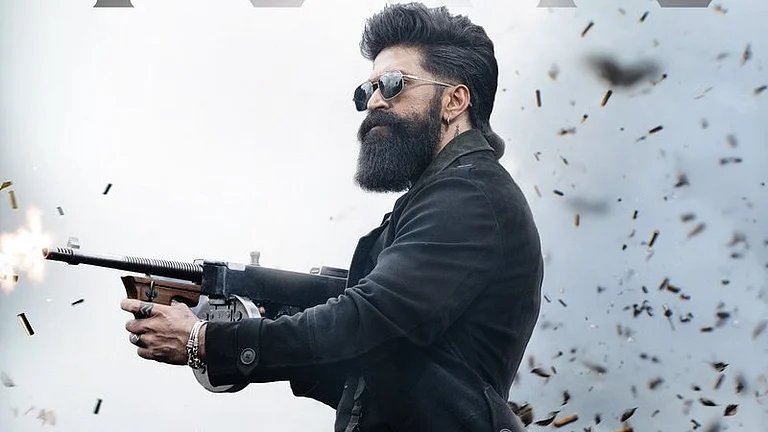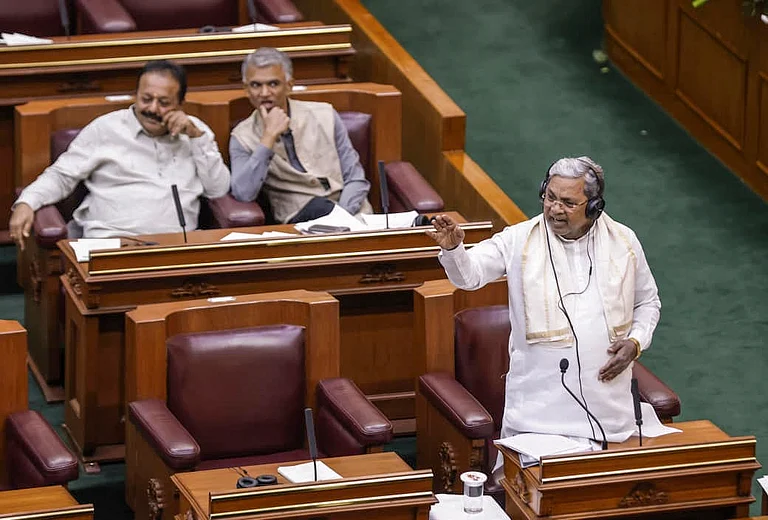In an unprecedented legal move, the Karnataka government led by Chief Minister Siddaramaiah has approached the Supreme Court against the Union government, demanding the release of drought relief funds under the National Disaster Response Fund (NDRF). This comes after a prolonged wait of five months for the state's claim to be processed, as per the established norms.
The Karnataka Government and the condition of Drought in the state
The extent of drought and water scarcity in Karnataka has been severe, prompting the state to declare 223 out of its 236 taluks or sub-districts as drought-hit. The memorandum submitted to the Central government pegs the crop loss at a staggering 48 lakh hectares of cultivated land. An Inter-Ministerial Central Team (IMCT) visited the state in October 2023 to inspect the damage caused by the deficient rainfall during the previous monsoon season.
The monsoon rainfall data paints a grim picture – a deficit of 56 per-cent in June (the third highest in 122 years) and a staggering 73 per-cent deficit in August (the highest in 122 years). Even the post-monsoon period failed to provide respite, exacerbating the drought conditions. The rocky nature of the aquifers in southern India, which are unable to hold much water at a time, further compounded the impact of the rainfall deficit.
In light of the extensive damage, the Karnataka government has sought a total of Rs 18,171 crore from the Centre under the NDRF. This includes Rs 4,663.12 crore towards crop loss input subsidy (for the cost of inputs like seeds and fertilizers), Rs 12,577.9 crore for gratuitous relief for families affected by drought, Rs 566.78 crore for drinking water purposes, and Rs 363.68 crore for cattle care.
The state government had already released an interim compensation of Rs 628 crore (Rs 2,000 per person) for 33 lakh farmers in January. However, the delay in receiving the funds from the Centre, particularly the Rs 4,663 crore for crop loss input subsidy, which should have been released promptly as per norms, prompted the legal challenge.
Why Karnataka went to Supreme court?
The writ petition filed in the Supreme Court seeks relief under Article 32 of the Constitution, which allows citizens to approach the apex court if they believe their fundamental rights have been violated. The Karnataka government argues that the delay in acting on the IMCT report and taking a final decision to release financial assistance is "ex-facie illegal, arbitrary, and violative of fundamental rights guaranteed to its citizens under Articles 14 and 21 of the Constitution of India" – the right to equality under the law and the protection of life and personal liberty, respectively.
Chief Minister Siddaramaiah stated that the state government did not want to mount a legal battle but was forced to do so due to the Centre's lack of response. This is the second major disagreement between the BJP-led Union government and the Congress-led Karnataka government over financial matters, following last month's "Delhi Chalo" protest by the CM and his Cabinet, alleging injustice in the devolution of taxes and other allocations.
Under the 2005 Disaster Management Act, states have their own Disaster Relief Funds, where the Centre contributes 75% of the funds (and 90% for Himalayan and northeastern states), and states contribute the remainder. In case a state needs the Centre's assistance, it must follow a procedure involving submitting a memorandum, an IMCT inspection, analysis by a National Executive Team, and approval by a High Level Committee for the release of immediate relief. The Union Ministry of Home Affairs oversees the utilization of NDRF releases.
The opposition parties in Karnataka, the BJP and the Janata Dal (Secular), have criticised the government's move, with the Leader of Opposition R Ashoka alleging that Siddaramaiah is trying to create a "political narrative" ahead of the upcoming Lok Sabha elections. JD(S) state president H D Kumaraswamy, whose party is part of an alliance with the BJP, termed the legal challenge and the earlier protest in Delhi as "stunts".


























